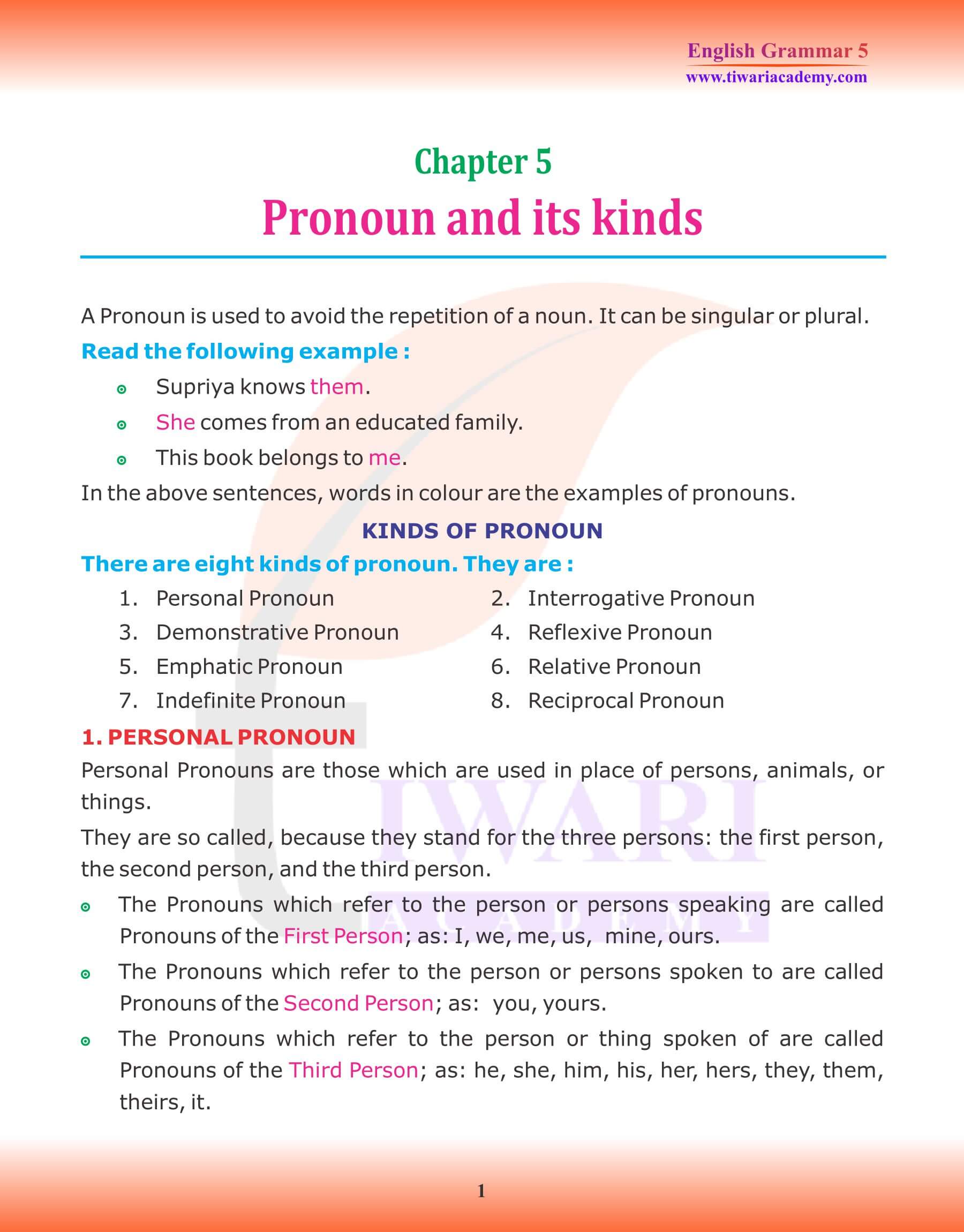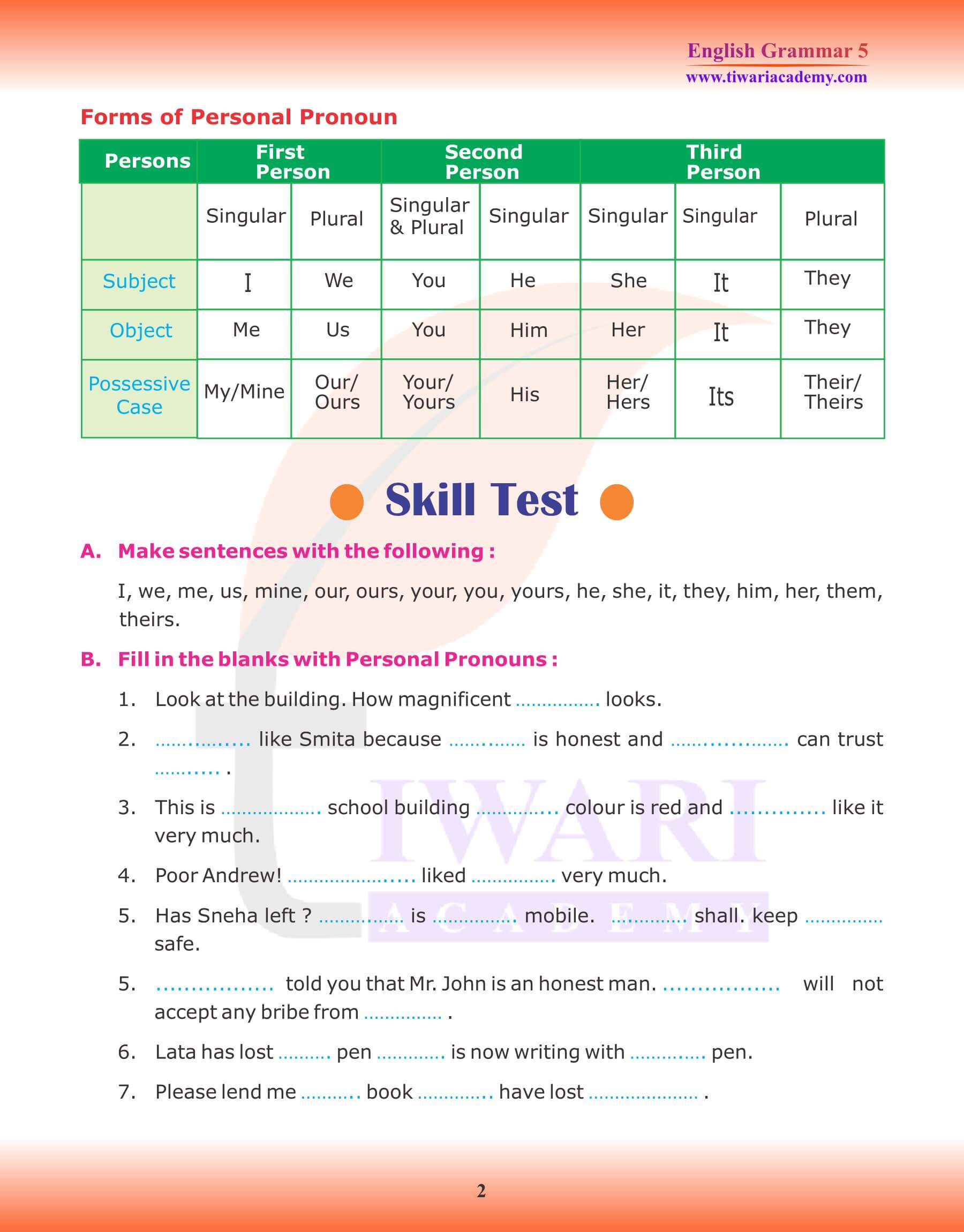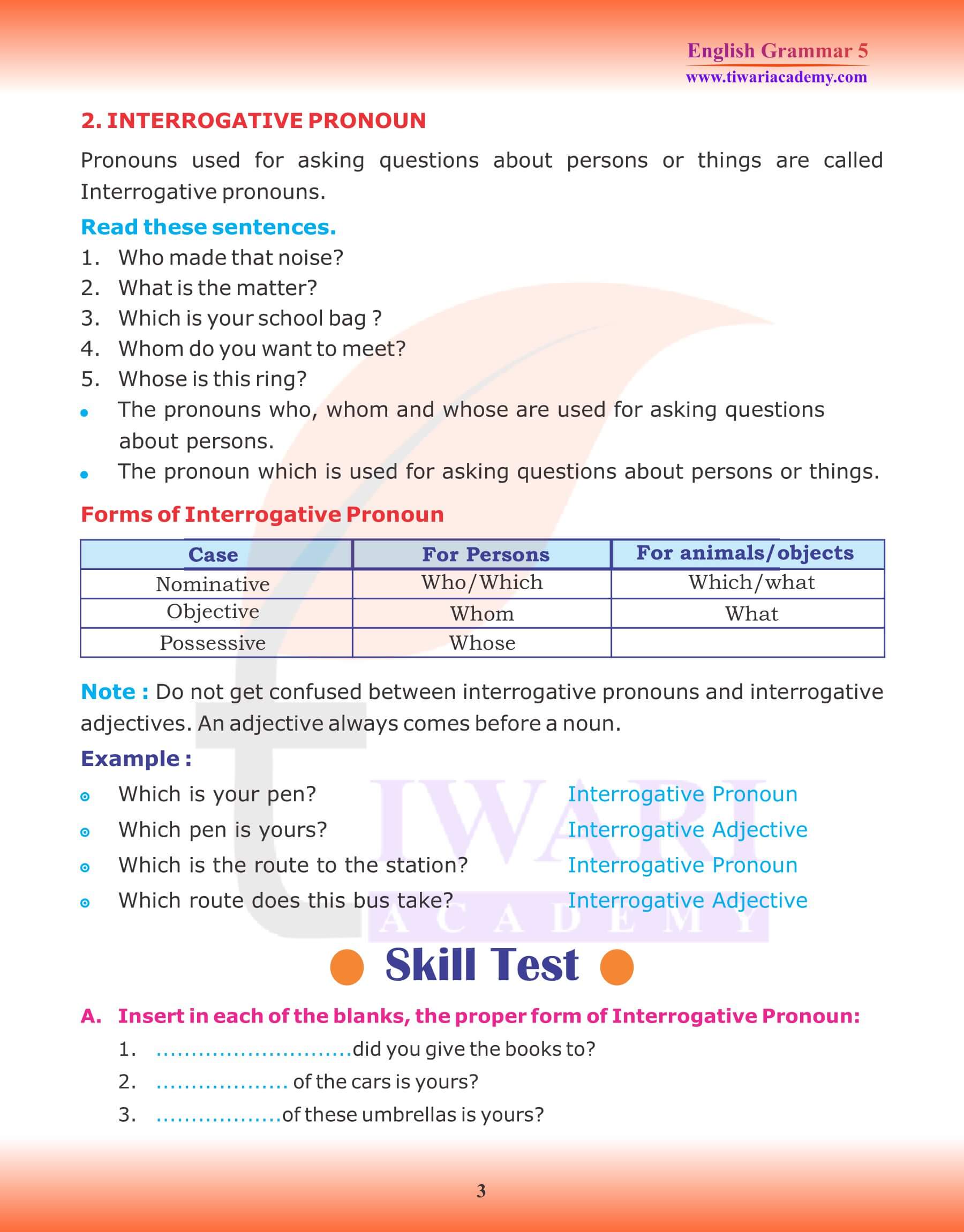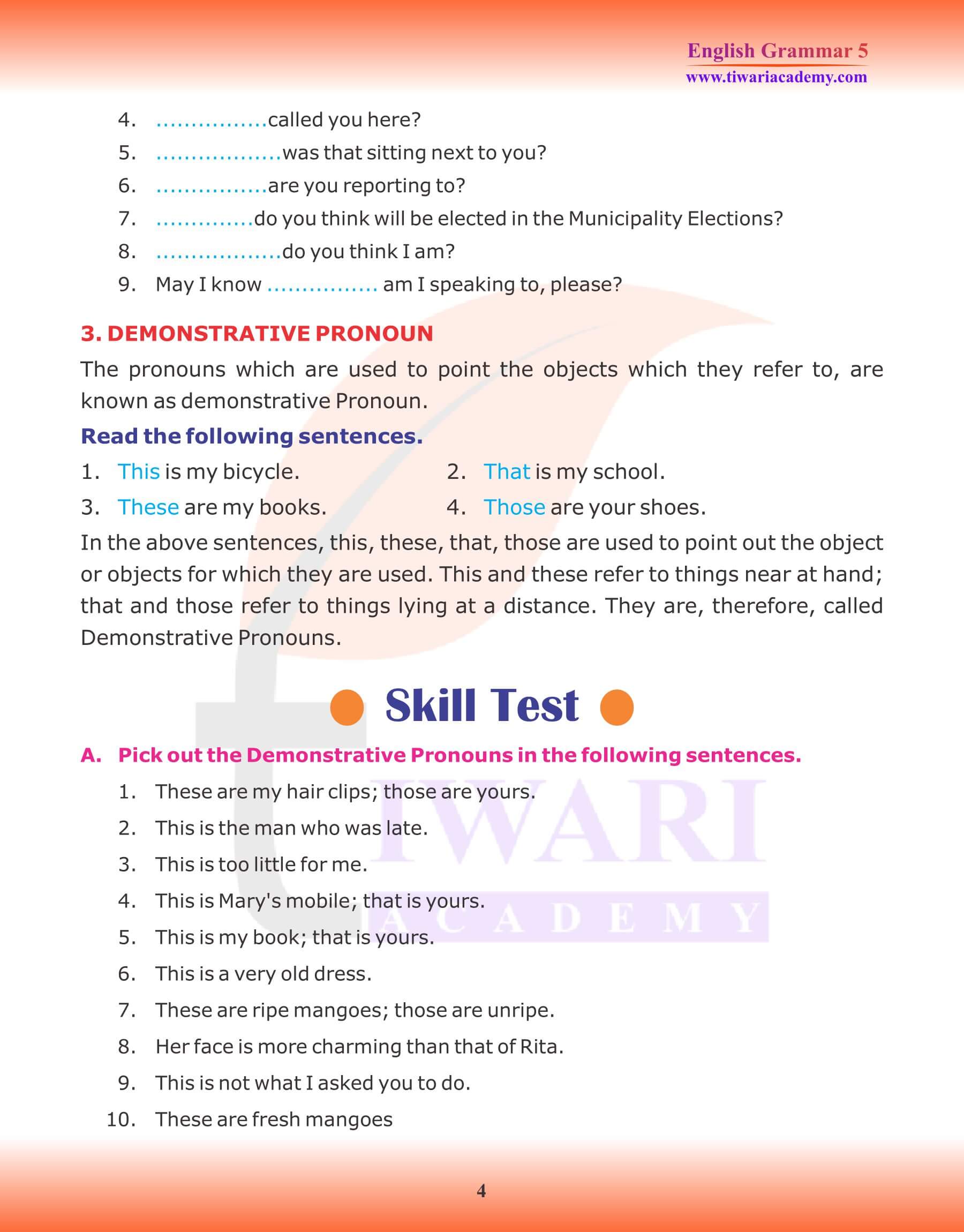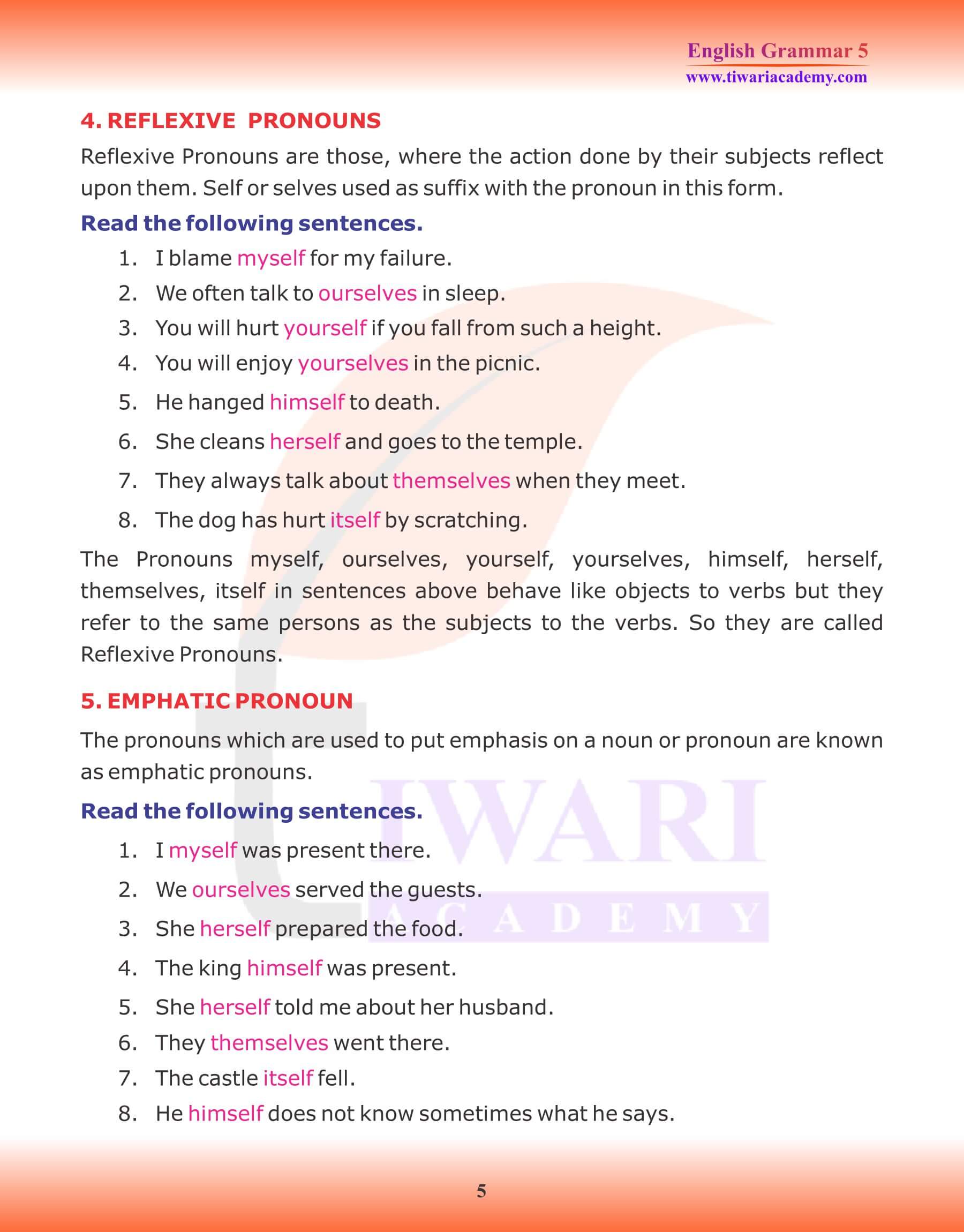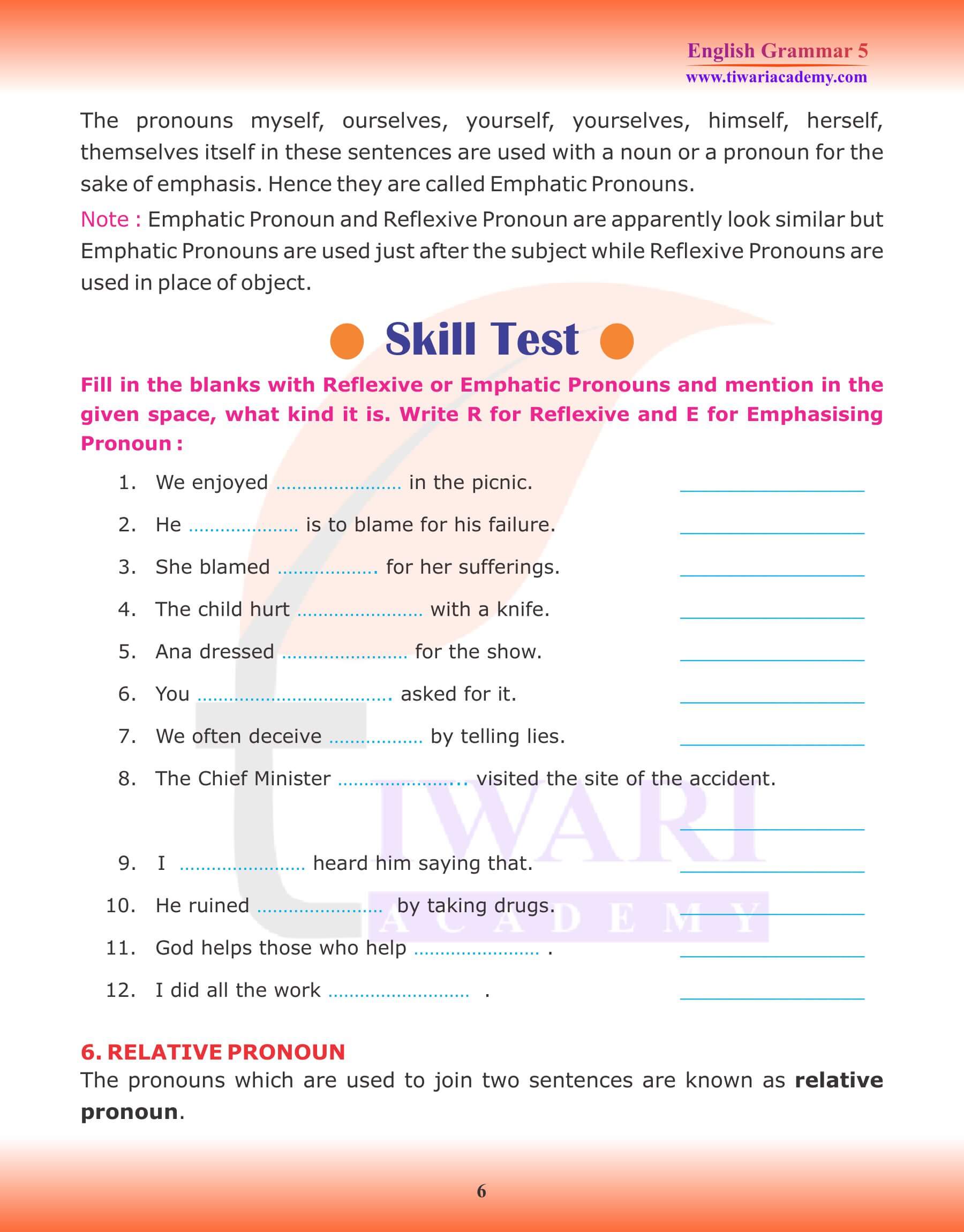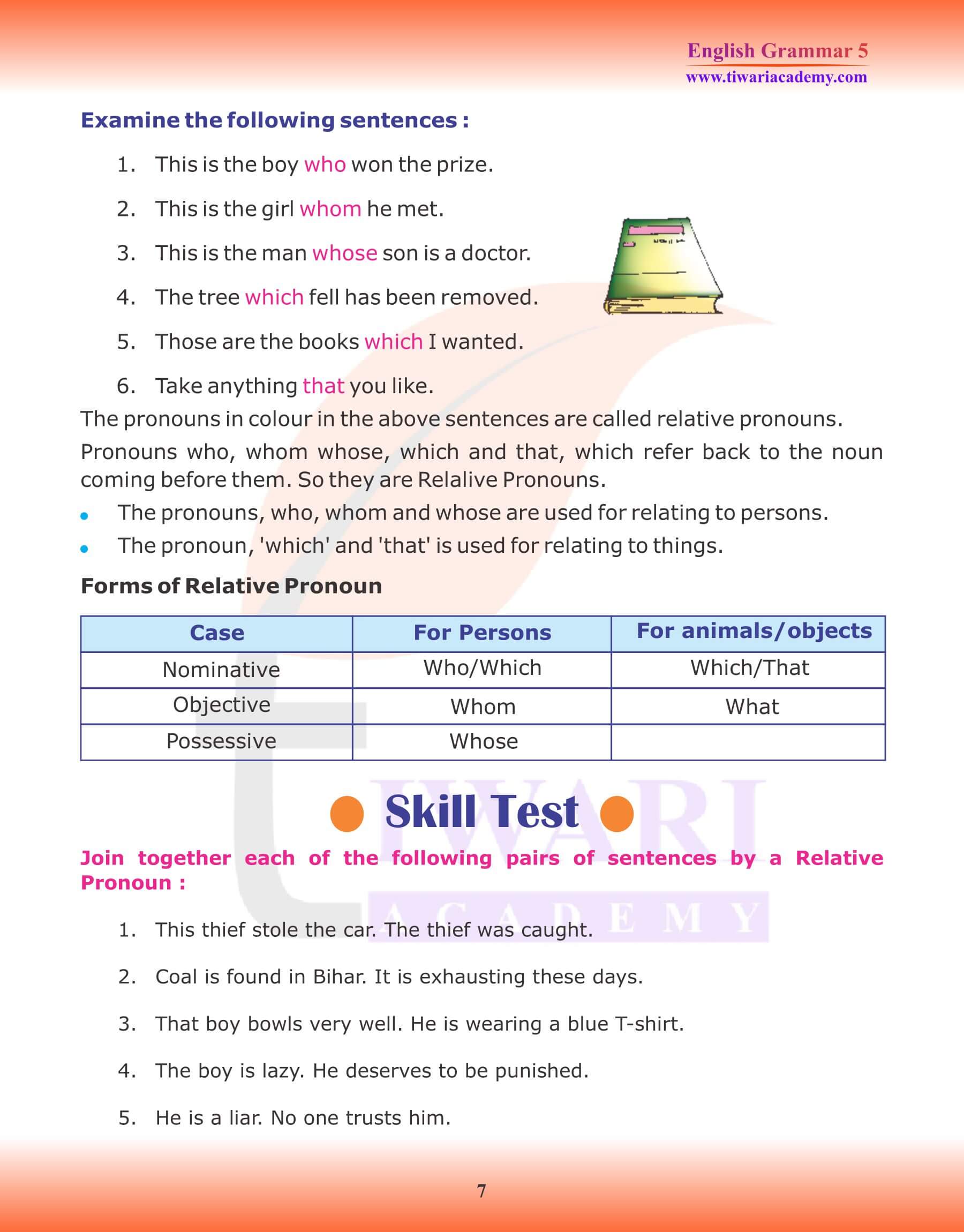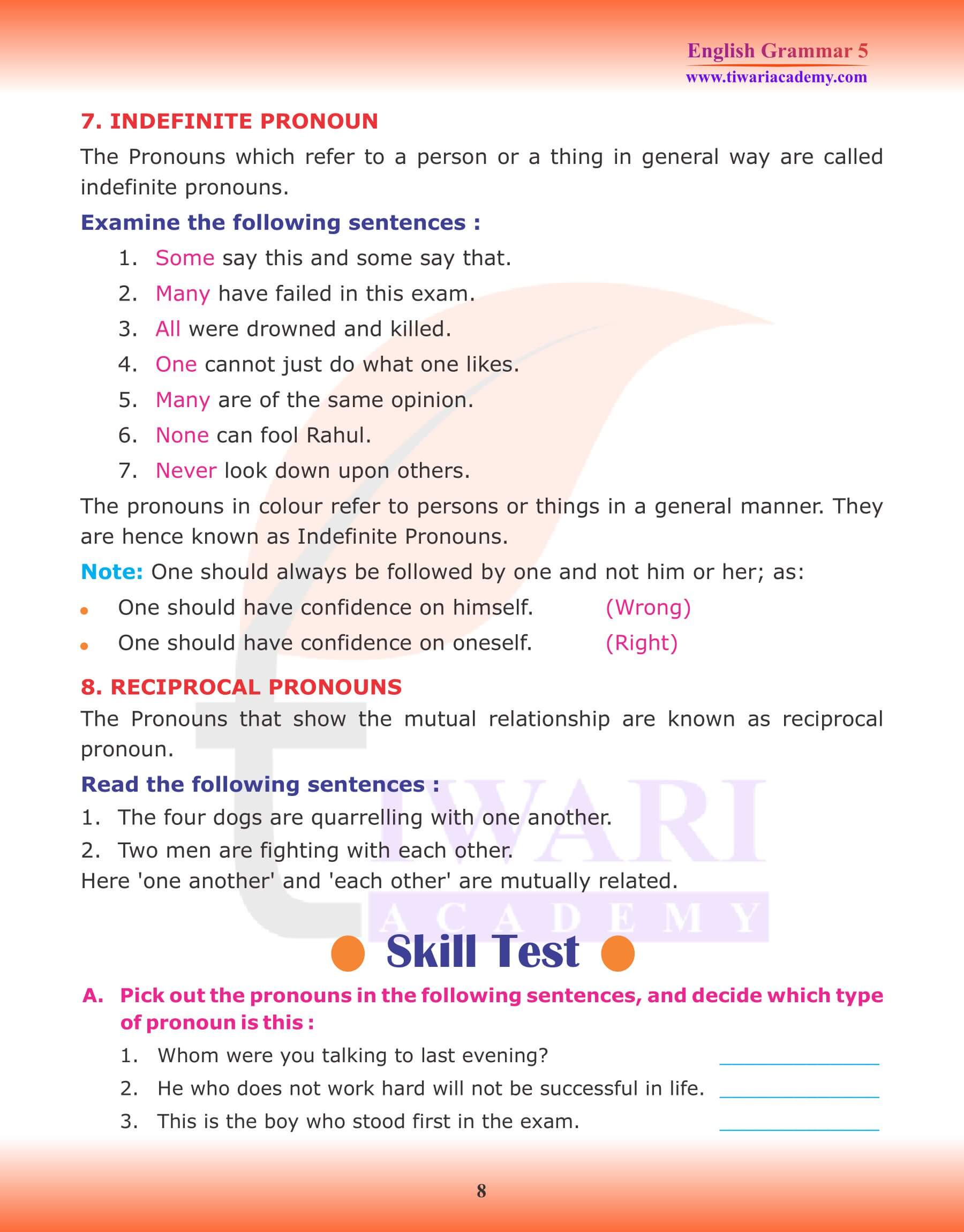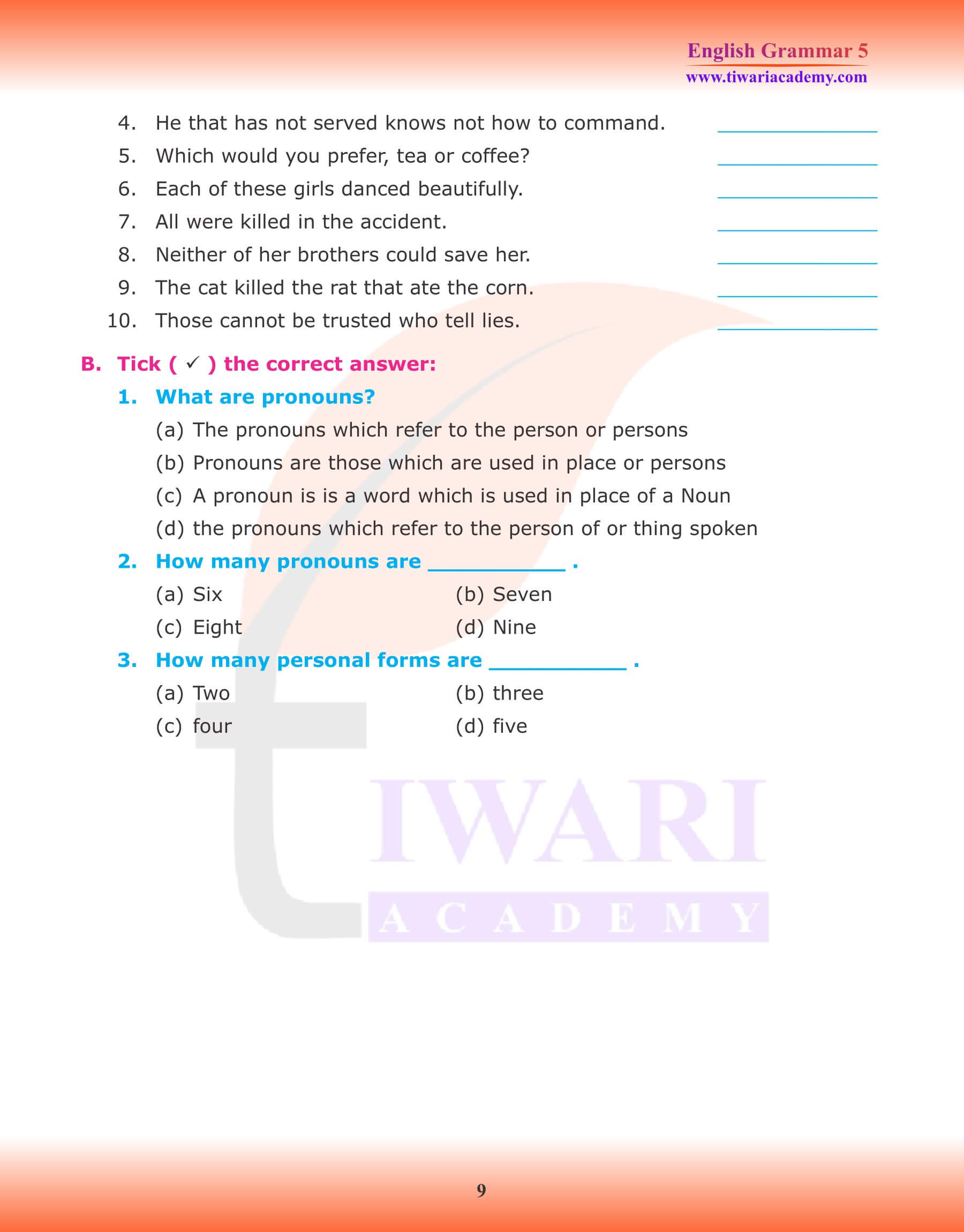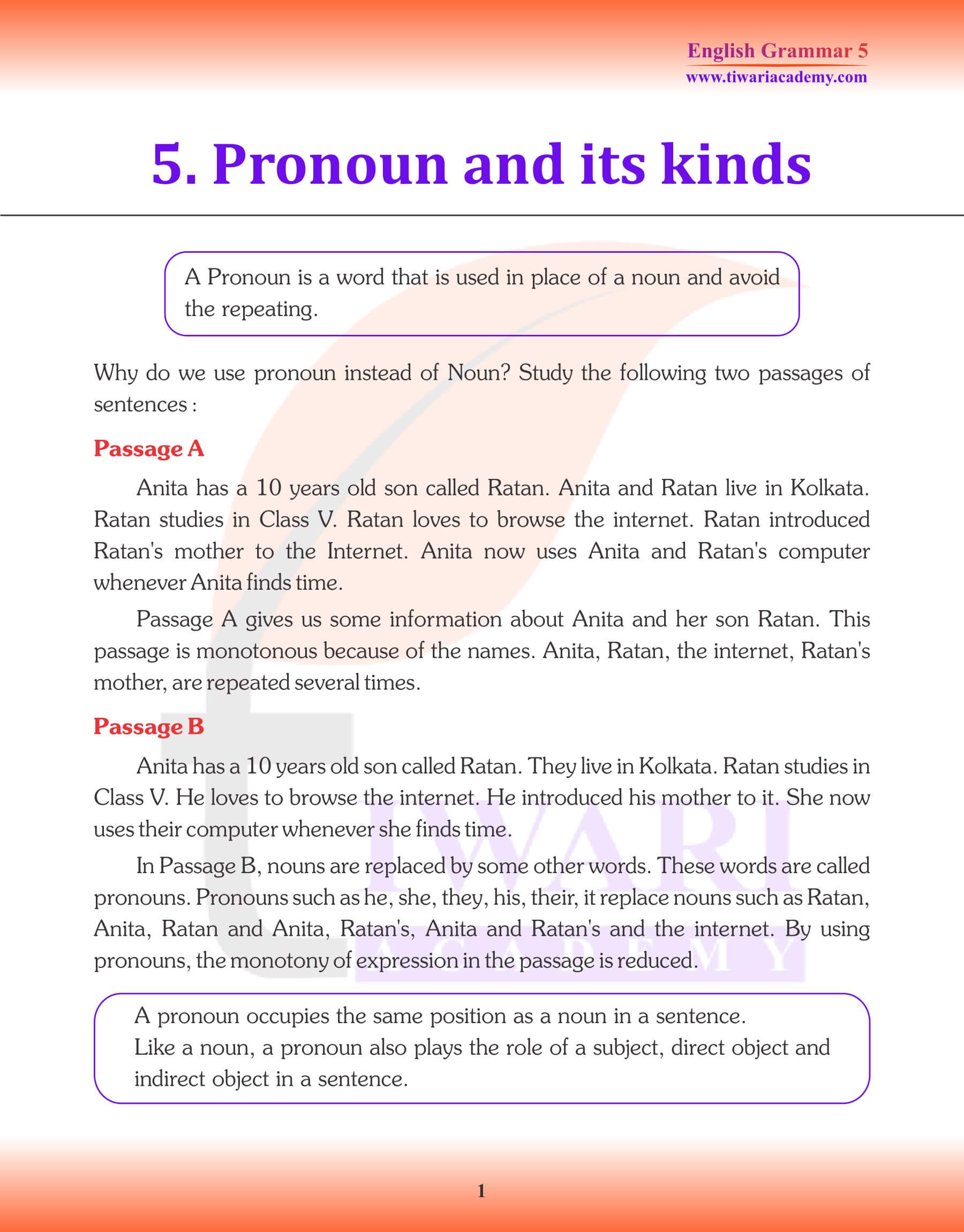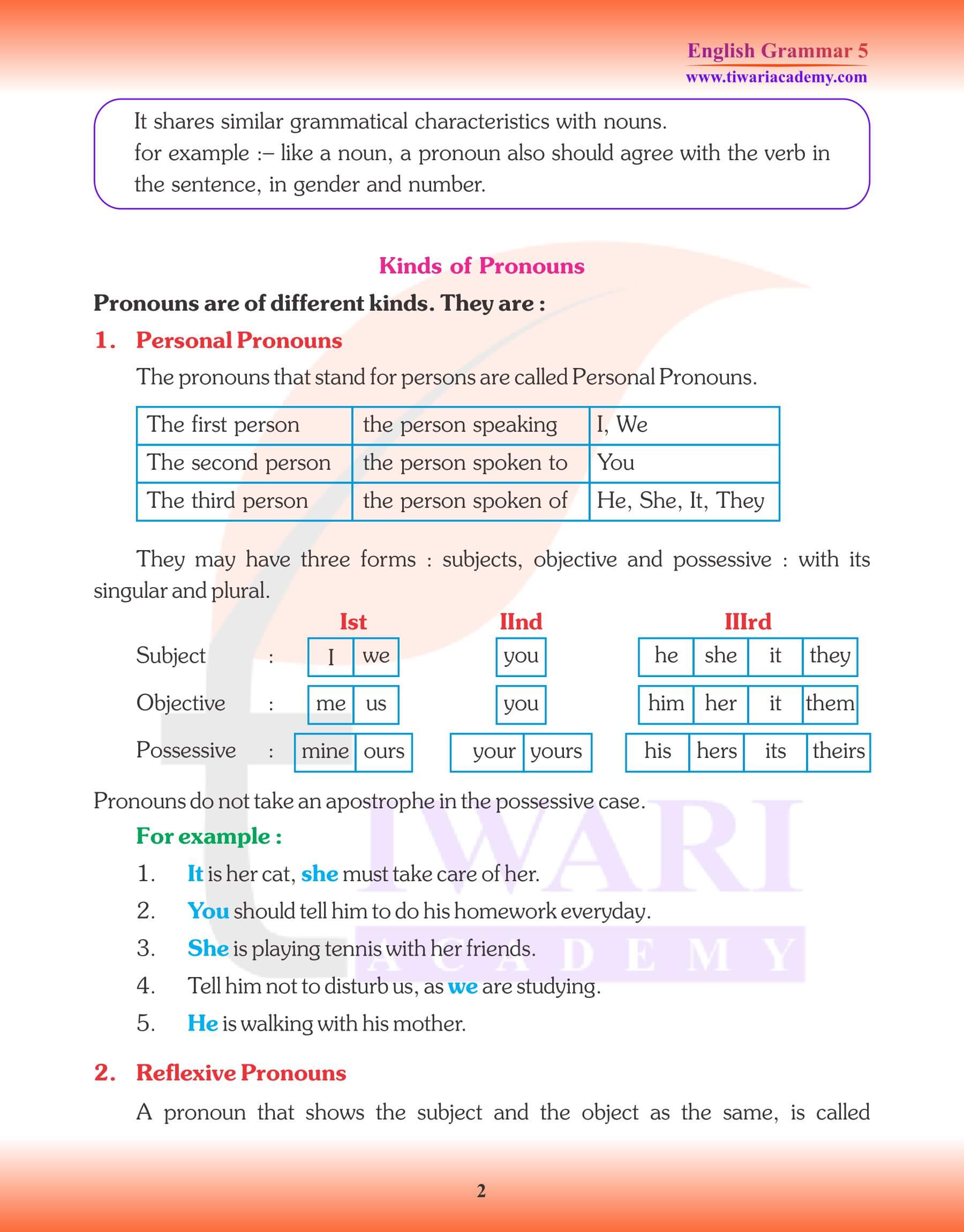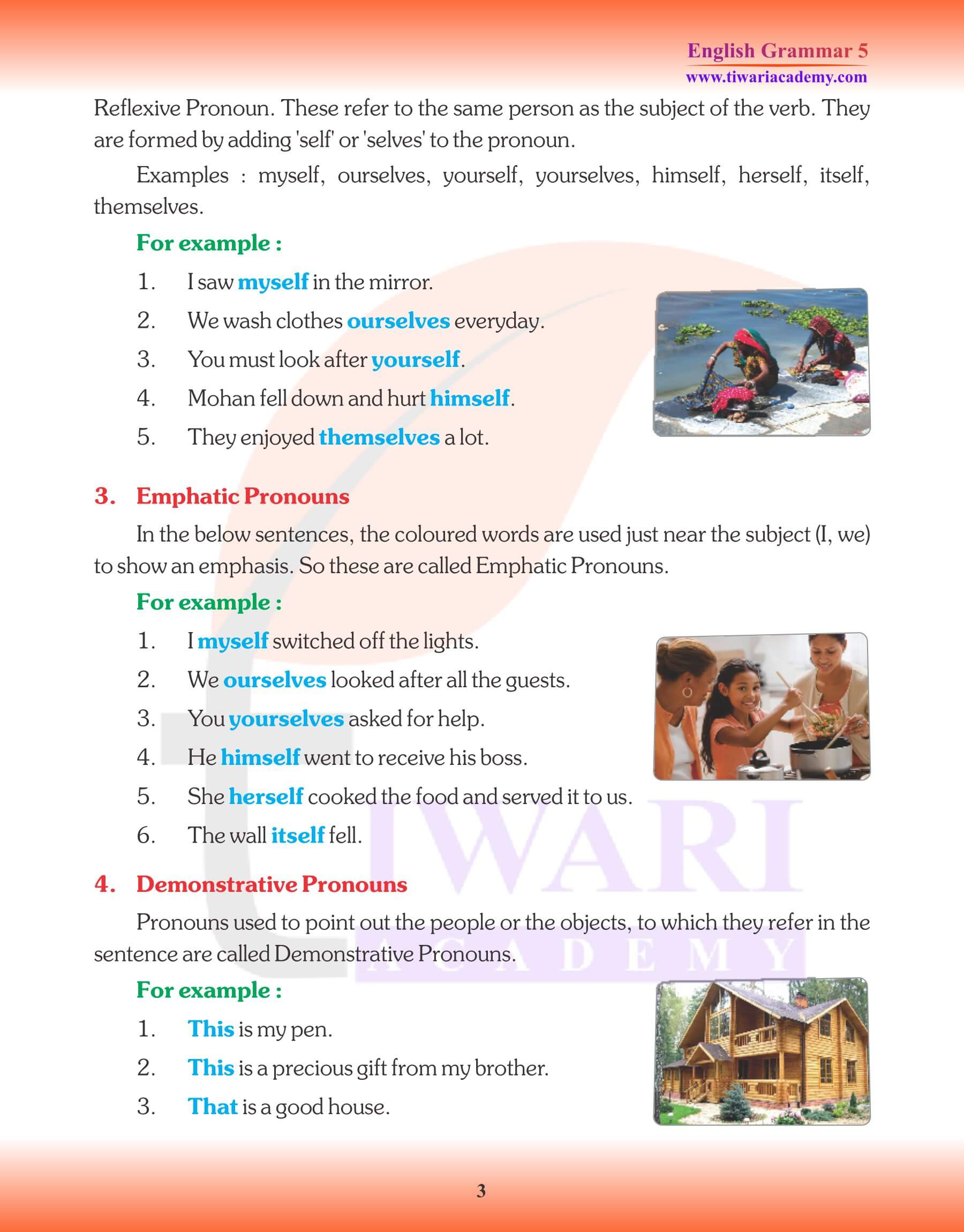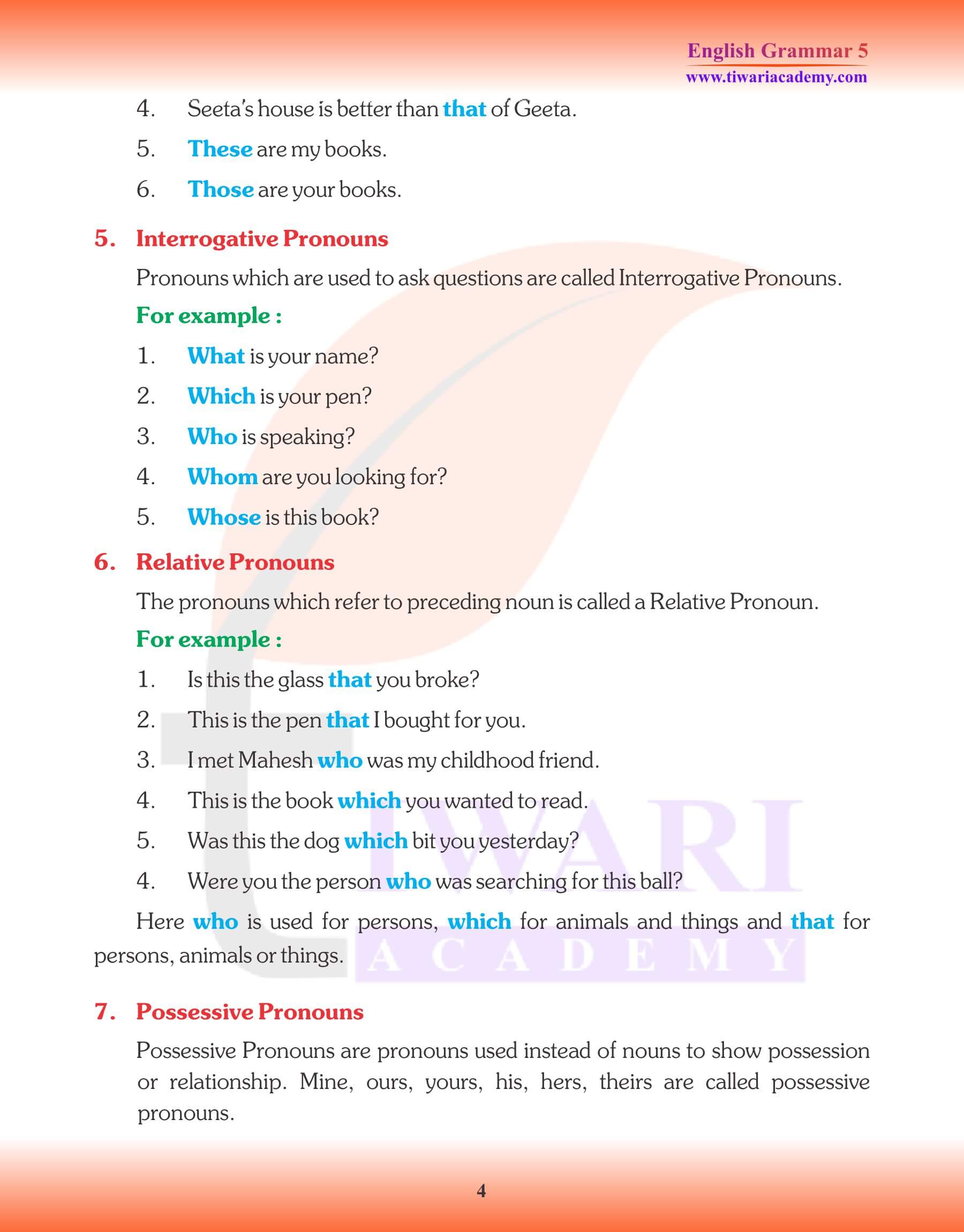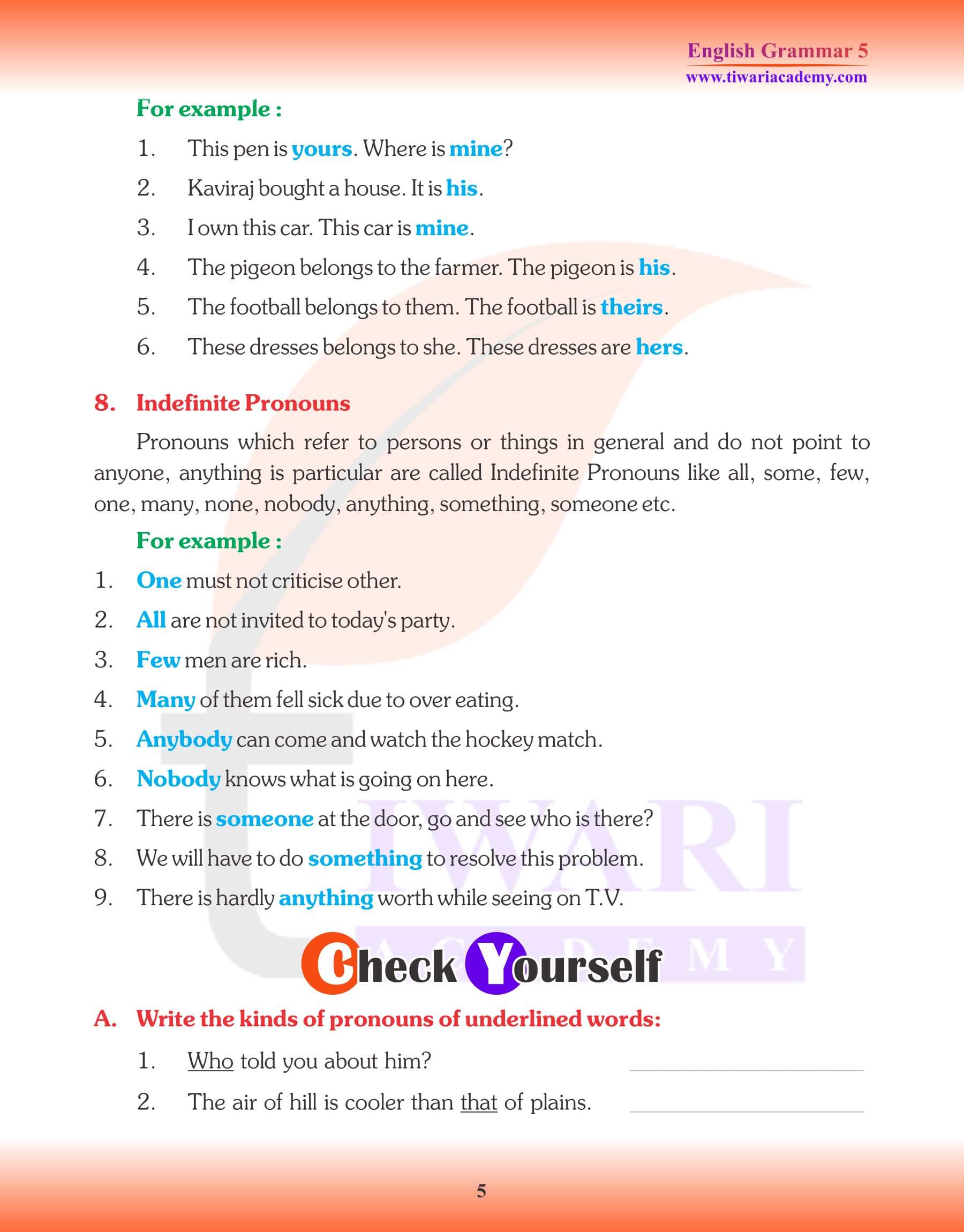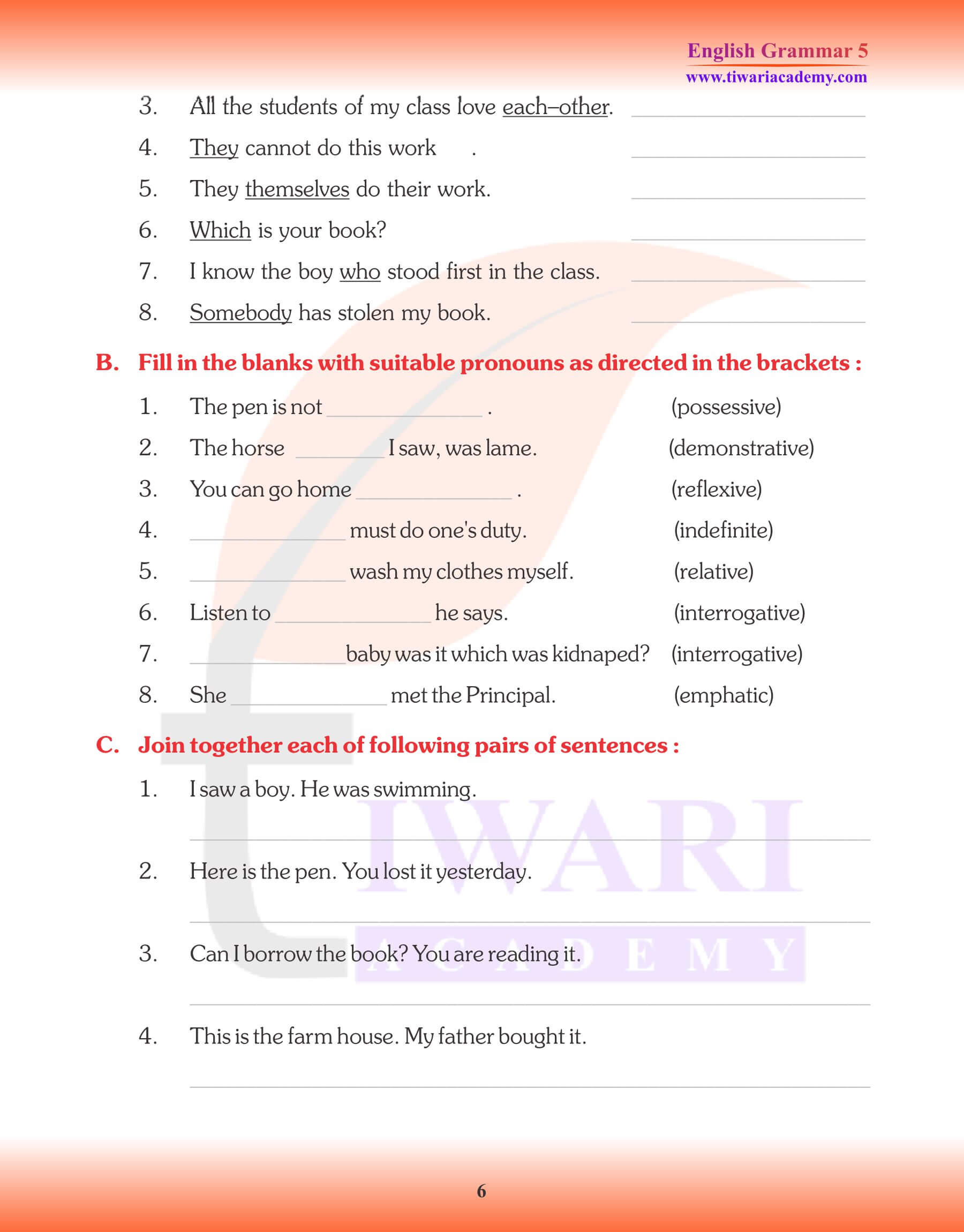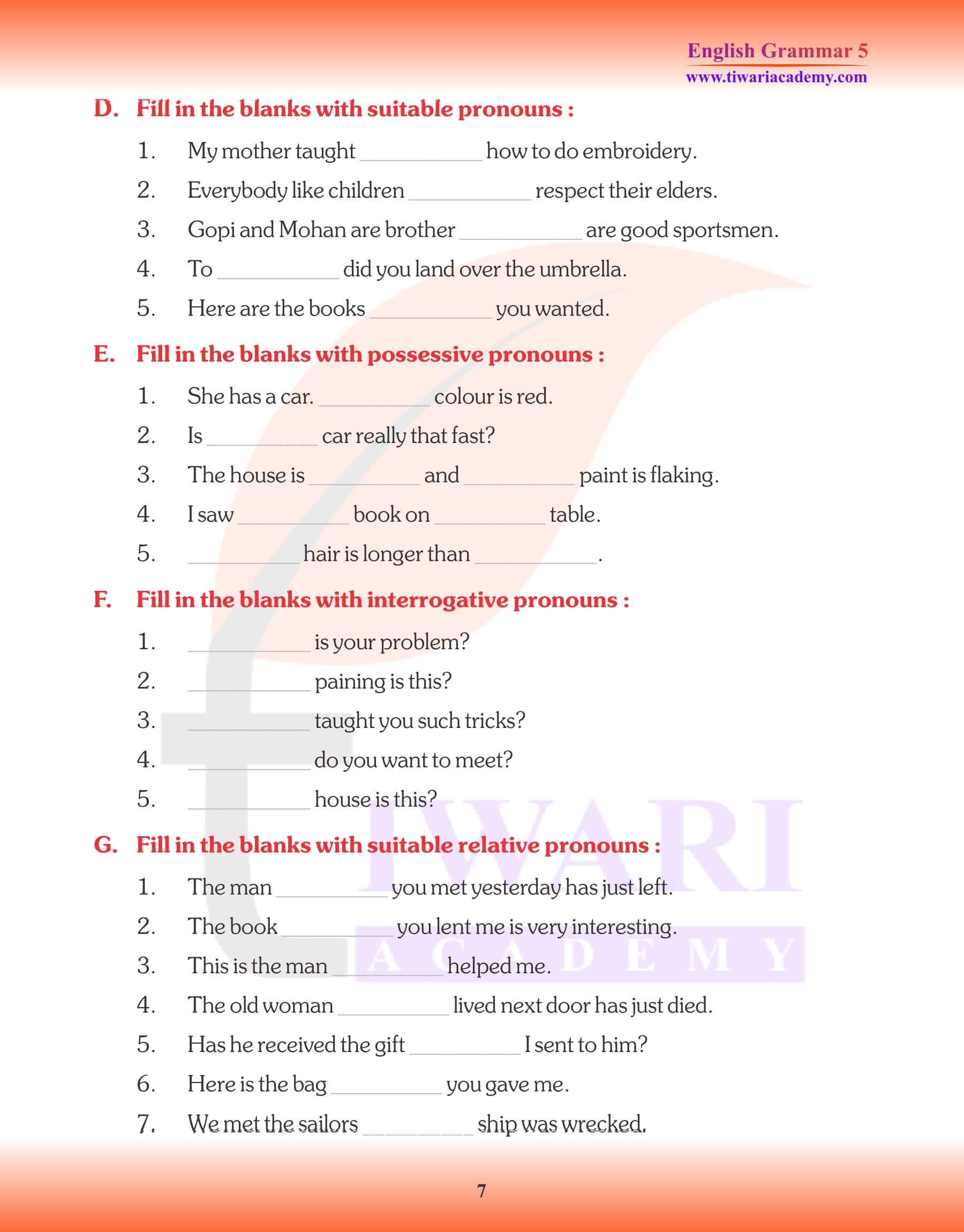NCERT Solutions for Class 5 English Grammar Chapter 5 Pronoun and its kinds updated for academic session 2024-25 free in PDF as well as online use. In this chapter, we will study about the pronoun and its eight kinds with examples. A Pronoun is used to avoid the repetition of a noun. It can be singular or plural. In the sentences, Supriya knows them; she comes from an educated family; this book belongs to me, the words like she, them, and me are examples of pronouns.
Exercises of Class 5 English Grammar Chapter 5 Pronoun and its kinds
Class 5 English Grammar Chapter 5 Pronoun and its kinds
| Class: 5 | English Grammar |
| Chapter: 5 | Pronoun and its kinds |
Kinds of Pronoun
There are eight kinds of pronoun. They are
- 1. Personal Pronoun
- 2. Interrogative Pronoun
- 3. Demonstrative Pronoun
- 4. Reflexive Pronoun
- 5. Emphatic Pronoun
- 6. Relative Pronoun
- 7. Indefinite Pronoun
- 8. Reciprocal Pronoun
Personal Pronouns
Personal Pronouns are those which are used in place of persons, animals, or things. They are so called, because they stand for the three persons: the first person, the second person, and the third person.
- The Pronouns which refer to the person or persons speaking are called Pronouns of the First Person; as: I, we, me, us, mine, and ours.
- The Pronouns which refer to the person or persons spoken to are called Pronouns of the Second Person; as: you, yours.
- The Pronouns which refer to the person or thing spoken of are called Pronouns of the Third Person; as: he, she, him, his, her, hers, they, them, theirs, and it.
Forms of Personal Pronoun
Forms of Personal Pronoun for first person
| Part of Speech | Singular | Plural |
|---|---|---|
| Subject | I | We |
| Object | Me | Us |
| Possessive Case | My/Mine | Our/ Ours |
Forms of Personal Pronoun for Second Person
| Part of Speech | Singular | Singular/ Plural |
|---|---|---|
| Subject | He | You |
| Object | Him | You |
| Possessive Case | His | Your/ Yours |
Forms of Personal Pronoun for Third Person
| Part of Speech | Singular | Plural |
|---|---|---|
| Subject | She, It | They |
| Object | Her, It | They |
| Possessive Case | Her/ Hers | Their/ Theirs |
2. INTERROGATIVE PRONOUN
Pronouns used for asking questions about persons or things are called Interrogative pronouns.
Examples:
1. Who made that noise?
2. What is the matter?
The pronouns who, whom and whose are used for asking questions about persons. The pronoun which is used for asking questions about persons or things.
Forms of Interrogative Pronoun
| Case | For Persons | For animals/objects |
|---|---|---|
| Nominative | Who/Which | Which/what |
| Objective | Whom | What |
| Possessive | Whose |
Note: Do not get confused between interrogative pronouns and interrogative adjectives. An adjective always comes before a noun.
Examples:
Which is your pen? (Interrogative Pronoun)
Which pen is yours? (Interrogative Adjective)
3. DEMONSTRATIVE PRONOUN
The pronouns which are used to point the objects which they refer to, are known as demonstrative Pronoun.
Examples:
1. This is my bicycle.
2. That is my school.
In the above sentences, this, these, that, those are used to point out the object or objects for which they are used. This and these refer to things near at hand; that and those refer to things lying at a distance. They are, therefore, called Demonstrative Pronouns.
4. REFLEXIVE PRONOUNS
Reflexive Pronouns are those, where the action done by their subjects reflect upon them. Self or selves used as suffix with the pronoun in this form.
Read the following sentences.
1. I blame myself for my failure.
2. We often talk to ourselves in sleep.
The Pronouns myself, ourselves, yourself, yourselves, himself, herself, themselves, itself behave like objects to verbs but they refer to the same persons as the subjects to the verbs. So they are called Reflexive Pronouns.
5. EMPHATIC PRONOUN
The pronouns which are used to put emphasis on a noun or pronoun are known as emphatic pronouns.
examples:
1. I myself was present there.
2. We ourselves served the guests.
The pronouns myself, ourselves, yourself, yourselves, himself, herself, themselves itself are used with a noun or a pronoun for the sake of emphasis. Hence they are called Emphatic Pronouns.
Note: Emphatic Pronoun and Reflexive Pronoun are apparently look similar but Emphatic Pronouns are used just after the subject while Reflexive Pronouns are used in place of object.
6. RELATIVE PRONOUN
The pronouns which are used to join two sentences are known as relative pronoun.
Examples:
1. This is the boy who won the prize.
2. This is the girl whom he met.
The pronouns who, whom in the above sentences are called relative pronouns. Pronouns who, whom whose, which and that, which refer back to the noun coming before them. So they are Relative Pronouns.
Forms of Relative Pronoun
| Case | For Persons | For animals/objects |
|---|---|---|
| Nominative | Who/Which | Which/That |
| Objective | Whom | What |
| Possessive | Whose | – |
7. INDEFINITE PRONOUN
The Pronouns which refer to a person or a thing in general way are called indefinite pronouns.
Examples:
1. Some say this and some say that.
2. Many have failed in this exam.
The pronouns this refer to persons or things in a general manner. They are hence known as Indefinite Pronouns.
Note: One should always be followed by one and not him or her; as:
One should have confidence on himself. (Wrong)
One should have confidence on oneself. (Right)
8. RECIPROCAL PRONOUNS
The Pronouns that show the mutual relationship are known as reciprocal pronoun.
examples:
1. The four dogs are quarrelling with one another.
2. Two men are fighting with each other.
Here “one another” and “each other” are mutually related.
What is the pronoun in Class 5 English Grammar Chapter 5?
Pronoun is the word used instead of noun to avoid the repetition of a noun. It can be singular or plural.
Ex.: (i). Supriya knows them.
(ii). She comes from an educated family.
Here “them” and “she” are pronoun.
What is the personal pronoun in Chapter 5 of English Grammar 5th Standard?
Personal Pronouns are those which are used in the place of a persons, animals, or things.
Ex.: I, we, me, you, yours, he, she, him etc.
What is demonstrative pronoun according to Class 5 English Grammar Chapter 5?
The pronouns which are used to point the objects which they refer to, are known as demonstrative Pronoun.
Ex.: This is my bicycle.
